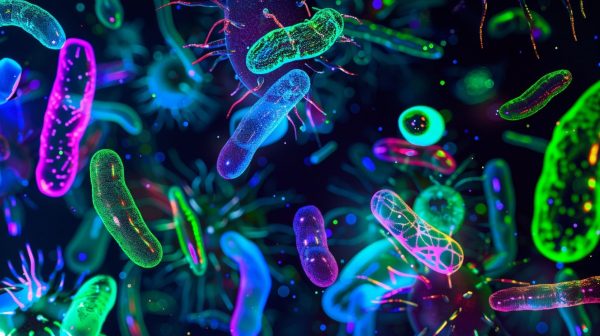The microbes in your gut aren’t just a bunch of bacteria that help break down and digest the foods you eat. They also “talk” to your brain.
This phenomenon is called the microbiota gut-brain axis.
Basically, it’s the ability your gut bacteria have to activate signals to your brain. This means your brain tunes into everything that’s happening in your digestive tract. And if you have the wrong mix of microbes in your gut, it could be skewing what happens in your brain.
This relationship is much stronger than researchers believed in the past. In fact, a June 2024 study published in Nature Mental Health finds that the gut microbiome may play a very distinct role in people who are highly resilient in the face of stressful events.
When Your Gut Says “Get Over It Already!”
I’m talking about mental and emotional resilience – a person’s ability to deal with and recover from challenging events. We all know people who seem to bounce back after nearly anything… and others who go into a tailspin when faced with any difficult experience, change or feeling of uncertainty.
We all want be the resilient person!
In the new study, the authors wanted to find out if the gut microbiome had any effect on how resilient people are when faced with stressful events.
A total of 117 people provided stool samples, underwent brain scans and completed questionnaires that measure and score psychological resilience.
After extensively analyzing the data, two groups emerged; people who ranked high on the resiliency scale and those who ranked low.
According to the lead author, those in the highly resilient group were found to be better at regulating their emotions, less likely to catastrophize, and more like to keep a level head. They also had brain activity associated with emotional regulation and better cognition when compared to the group with low resiliency.
And guess what?
The two groups had some major differences in the gut their gut microbiomes. The highly resilient group had a greater diversity of microbes and metabolites, and lower levels of inflammation compared to those with low resilience. They also had stronger and healthier gut barriers.
Those strong and healthy gut barriers are very important, because a weak barrier is associated with leaky gut, and nobody wants to deal with that.
Leaky gut allows bacteria, toxins and other foreign substances to leak from your gut into your bloodstream, while preventing the absorption of essential nutrients. This leads to all sorts of health complications, including many of today’s most common autoimmune disorders. Rheumatoid arthritis, lupus, inflammatory bowel disease, psoriatic arthritis and multiple sclerosis are just some of them.
In other words, those who score low on resilience against stress have unhealthier gut microbiomes… and those unhealthy gut microbiomes can lead to some extremely stressful health disorders!
Feed Your Gut for More Resilience
If you want to build a healthier gut and gain more resilience against stress, the very first thing I recommend is arming yourself with a good probiotic formula. Look for one that includes a prebiotic and multiple live strains of beneficial bacteria. The higher the colony count, the better off you’ll be.
Now, a probiotic alone isn’t a cure-all. But it will provide much needed support while you work on changing your eating habits to promote a healthy gut microbiome.
The fastest way to replenish healthy gut bacteria is eating a diet high in fruits and vegetables. These plant-based foods are associated with a highly diverse microbiota. The more variety you include, the healthier your gut will be… and the happier your brain will be.
Meat, on the other hand, can throw the bacteria in your gut out of whack. And it can do it in as little as four days.
This is one of the reasons I recommend loading up on organic fruits and veggies 85% of the time, and eating meat only about 15% of the time. (And by the way, when you choose to eat meat, make sure it’s from grass-fed livestock or organic pasture-raised poultry.)
But there is so much more to know about your gut! Click here to learn how prebiotics, probiotics and postbiotics work together to protect your gut microbiome – and where to find them.
SOURCES:
An E, Delgadillo DR, Yang J, Agarwal R, Labus JS, Pawar S, et al. Stress-resilience impacts psychological wellbeing as evidenced by brain–gut microbiome interactions. Nature Mental Health. 2024. Online ahead of print.
Resiliency shaped by activity in the gut microbiome and brain. University of California, Los Angeles (UCLA). News Release. Jun 2024.



